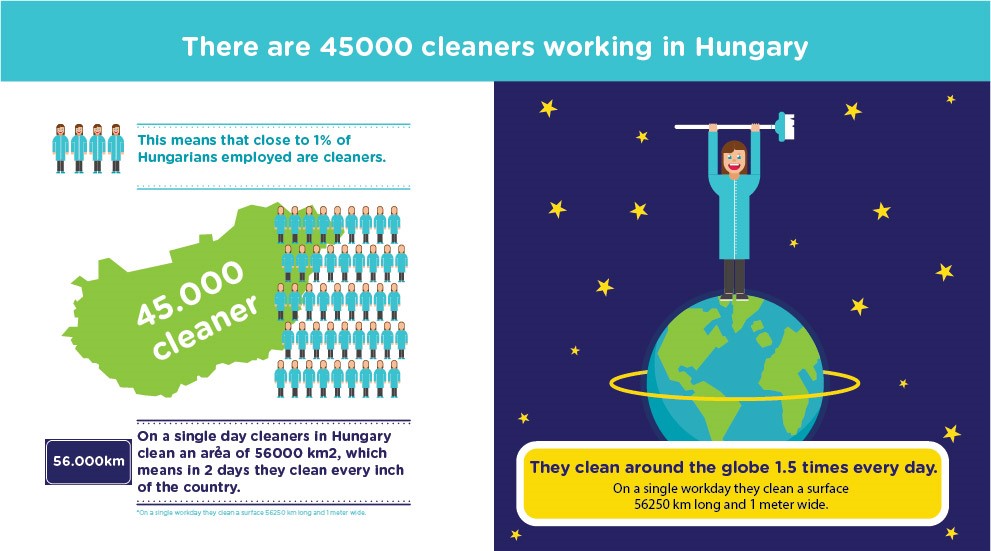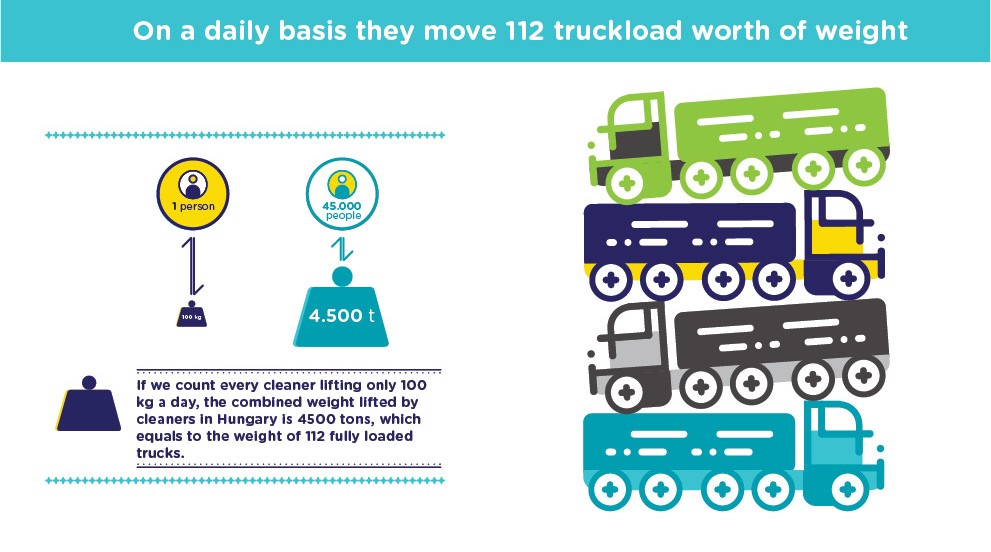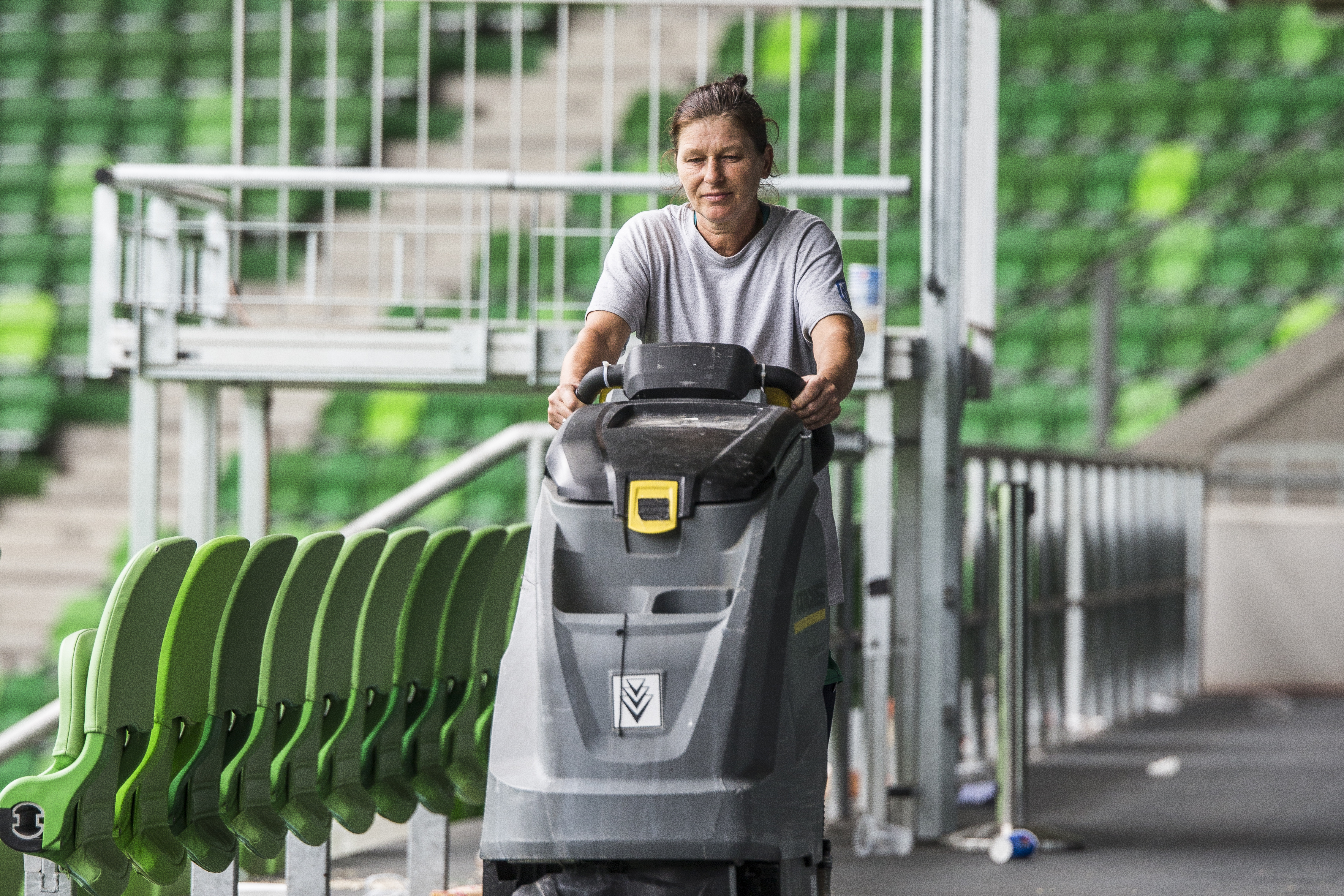
Companies employing professional cleaners are struggling with labour shortage which is also influenced by the low social prestige and the general lack of appreciation. In order to make a difference, Hungary’s biggest facility management company, B+N Magyarország Kft. has launched a social sensitivity campaign.
‘Since last year we have been planning to launch a social sensitivity campaign to make the public aware of the socially indispensable, yet almost invisible, work of cleaners’, said Ferenc Kis-Szölgyémi, CEO of B+N Magyarország Kft. ‘The groundwork had been laid for long months but by the time we were ready, COVID-19 had reached the country. Cleaners in Hungary have always deserved our heartfelt appreciation, but in these times they deserve it a 100 times more.’
Our goal is to make our society notice and acknowledge the more that 45000 “invisible” cleaners in the country , as they make up almost 1% of all domestic employees, being present in all workplaces, pubic areas and hubs. We employ 4100 cleaners who are doing a great job cleaning transportation vehicles, hospitals and office buildings. The majority of our society take cleanliness for granted but do not appreciate the people who make it happen. With our campaign “Look round and see” we want to show an alternative approach.
Order as usual, service as expected?
Professional cleaning is a vocation too, which requires training and field-specific expertise. There are various cleaning technologies and in many places cleaners have to work with complex and expensive cleaning machines. Insufficient knowledge of chemicals can cause serious health problems or accidents.
Customers want to get cleaning services for as cheap as possible. Oftentimes the requests are extremely focused on low pricing regardless of what kind of technology or human capital needs to be applied to reach the required quality of service, which would be all the more important for the customers given how big an effect a clean and orderly work environment can have on company image or the general feeling of employees.
‘Customers don’t calculate whether their cleaning company can pay at least the minimum wage for its workers from the money they receive’, explained Ferenc Kis-Szölgyémi. If it cannot, they not only implicitly support the grey or black economy, they also take risk, since, although people tend to forget it, this work is a matter of trust. You wouldn’t let a total stranger into your home unchecked either. References from friends providing proof of the cleaner’s reliability, quality and accountability are important.

It is surprising especially in light of a survey conducted by the Hungarian Central Statistical Office examining 173 occupations in terms of social prestige according to different aspects: for example how much power or influence they entail, how much one has to learn for them, how useful they are for society, how trendy or appealing they are nowadays. According to the subjective judgement of the respondents, cleaning is among the ten lowest-prestige jobs, coming ahead of only road sweepers, garbage collectors, leaflet distributors and unskilled workers. ‘We believe cleaners deserve a lot more than that. Imagine what our world would be like without them. What would we say if nobody emptied the dustbin or disinfect the hospital rooms?’

What would we say if nobody emptied the dustbin or disinfect the hospital rooms?’, asks Erika Kókai, Marketing Director of B+N. ‘We have got so used to the order and cleanliness around us that we simply take it for granted and fail to even notice the people who created it. We believe people are indifferent because nobody has shown a good example by appreciating the work cleaners do for us. It is our responsibility to do something about the prestige of this work because if everything stays the same, soon nobody is going to be left to clean the country’.
Source: piacesprofit.hu

